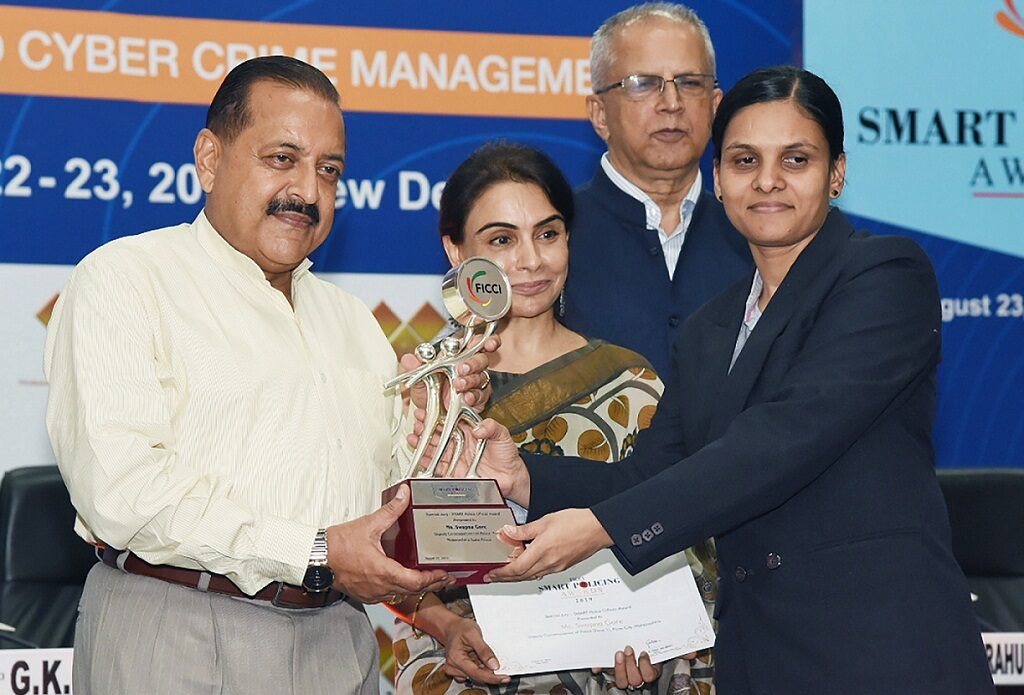Pune City Police bags two awards from FICCI for SMART Policing

The Minister of State for Development of North Eastern Region (I/C), Prime Ministers Office, Personnel, Public Grievances & Pensions, Atomic Energy and Space, Dr. Jitendra Singh presenting the Smart Policing Awards, at the Homeland Security 2019 Conference, in New Delhi on August 23, 2019.
New Delhi / Pune, August 23, 2019 : The Pune City Police have received two awards from the Federation of Indian Chamber of Commerce and Industries (FICCI) for SMART Policing Awards for the year 2019. Representing Pune City Police, Deputy Commissioner,Swapna Gore received the award from Jitendra Singh, (Hon. Minister of State, Govt. of India) during a programme organised by FICCI and Vivekanand International Foundation on Homeland Security in New Delhi on 23rd August 2019.
Federation of Indian Chamber of Commerce and Industries (FICCI)on an annual basis organises a conference on Homeland Security, which witnesses participation from senior officials from Government of India, Central Armed Police Forces (CAPFs) and various State Police Forces (SPFs). FICCI has instituted an award for best practices in SMART Policing in India.
The objective is to promote initiatives taken by the Police for the safety and security of Indian citizens. The eleventh edition of the Homeland Security programme was organised in partnership with ‘Vivekananda International Foundation’ with the theme of ‘Innovation led Cyber Crime Management’. Over 195 entries were received from various law enforcement agencies and the esteemed jury members presented the Special Jury Award and Smart Police Officer award to Pune City Police for the initiatives of ‘Criminal Intensive Response Project (CrISP)’ and ‘Proactive Control on Women Trafficking and Control on Red Light Area Crimes’.CrISP is a crime control projectwith an objective of regularly tracking known criminals and is being run by Crime Branch, Pune City.
Till date, over 10,500 criminals have been checked resulting in reduction in crimes under various heads such as 40% reduction in robbery cases, 12% reduction in vehicle theft cases and 20% reduction in house break-ins as compared to last year’s data.
Proactive Control on Women Trafficking and Control on Red Light Area Crimes is a specific target oriented initiative aimed at rehabilitation of sex workers and reducing crime and illegal activities in red light areas of the city through various interventions such as detailed social study of sex workers and their families, regular nakabandi and constant monitoring of illegal activities and taking appropriate action resulting in reduction in crimes in red light areas.







